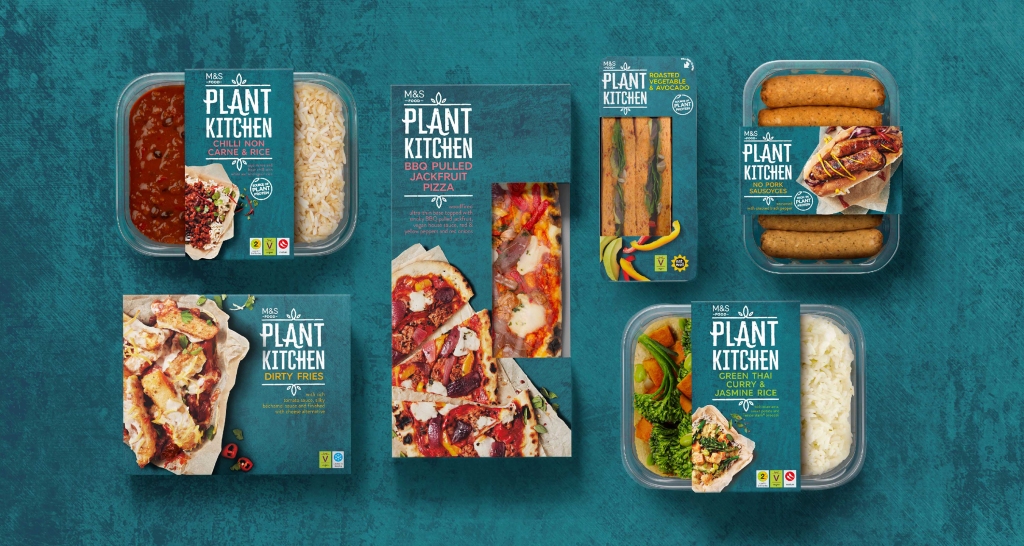Vegan packaging is any type of packaging that does not contain any animal products. This includes things like paper, cardboard, glass, metal, and plastic. The production processes of these materials also use no animal products. Pacdora provides online rendering and packaging design to cut the unnecessary process of printing to further avoid non vegan packaging.
Even though vegan products don’t contain any animal-based materials, they may still contain petroleum-based materials that take hundreds of thousands of years to decompose. Moreover, vegan certification for corrugated cardboard is quite expensive and it’s rarely obtained.

Why you should use vegan packaging products?
A brand may decide to use vegan materials if veganism is a key value to them. vegan products that don’t contain petroleum-based plastics are more likely to be biodegradable, recyclable, and/or compostable.
There are many reasons to choose vegan packaging. First and foremost, it is more environmentally friendly than traditional packaging made from animal products. Vegan packaging is also often made from recycled materials, which further reduces its impact on the environment. In addition to being more environmentally friendly, vegan packaging is also often more durable and sturdy than traditional packaging. This is because vegan packaging is not made from animal products, which are often weaker and more prone to damage. Finally, vegan packaging is often more aesthetically pleasing than traditional packaging. This is because vegan packaging is not made from animal products, which can often be unappealing to look at.
Why shouldn’t use vegan products?
Non-vegan materials for packaging usually come from sources like hides, blood and sinew – which are all byproducts of the meat industry that would otherwise go to waste. However, vegan materials like rubber and oils from plants require a lot more labor and energy to obtain. Though it is more expensive, it results in a larger expenditure of fossil fuel compared to using animal by-products.
On the other hand, animal by-products are readily available because the demand is high. If companies like you and us start using more vegan products, they could eventually be a readily available material. Also, the huge impact of animal farming/livestock breeding and the resulting by-products cannot be ignored, so this isn’t all black and white.
Frequently asked questions about Vegan Packaging
Is cardboard vegan?
Cardboard is made from paper, which is a plant-based material. However, some types of cardboard may contain small amounts of animal-based materials, such as gelatin or casein. These materials are usually not listed on the product label, so it is best to contact the manufacturer to inquire about the source of these materials. Overall, cardboard is considered to be a vegan-friendly material.
Is paper vegan?
There is no definitive answer to this question as it depends on the composition of the paper and the manufacturing process. Some paper products may contain animal-based ingredients or by-products, while others may be completely vegan.
Paper products that are likely to be vegan include those made from 100% recycled paper, as well as those made from plant-based materials such as bamboo, hemp, or cotton.
However, it is important to check the labels and/or contact the manufacturer to be sure, as some paper products may be processed with animal-derived chemicals or other non-vegan ingredients.
In general, paper products that are made from virgin wood pulp are less likely to be vegan, as the bleaching process often uses animal-derived chemicals such as bone char. However, there are some brands that offer vegan-friendly paper products made from virgin wood pulp.
Is plastic vegan?
There is no definitive answer to this question as it depends on personal definition of veganism. Some people may consider plastic to be vegan if it is not made from animal products, while others may not consider it to be vegan if it is not biodegradable.
Plastic is typically made from petroleum, which is a non-renewable resource. The production of plastic also emits greenhouse gases and can pollute the environment. Some vegans may choose to avoid plastic because of its negative impact on the environment.
Plastic is not biodegradable, which means it will remain in the environment for centuries. This can be harmful to wildlife that mistake plastic for food. It can also pollute the air and water. Some vegans may choose to avoid plastic because of its negative impact on the environment.
Plastic is often used in packaging, which can make it difficult to avoid. However, there are some vegan-friendly alternatives to plastic, such as paper or compostable materials. Some vegans may choose to avoid plastic packaging, or look for products that are packaged in more sustainable materials.
What does vegan friendly mean?
A vegan friendly person or business is one who is willing to accommodate the needs of vegan customers or employees. This might mean offering vegan options on a menu, or providing vegan-friendly products in a store. It can also mean being understanding and accommodating of vegan lifestyles in the workplace.

Leave a comment